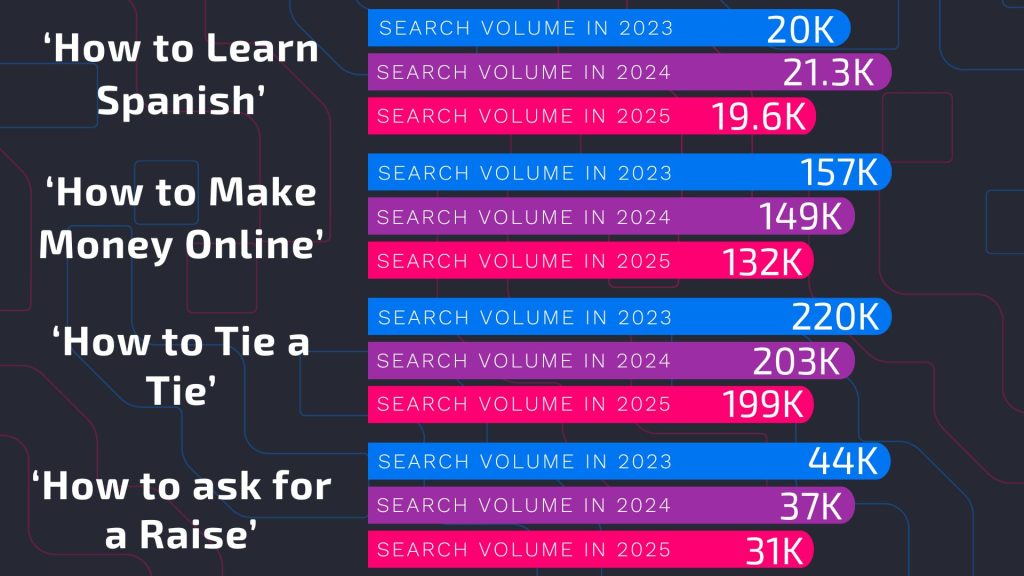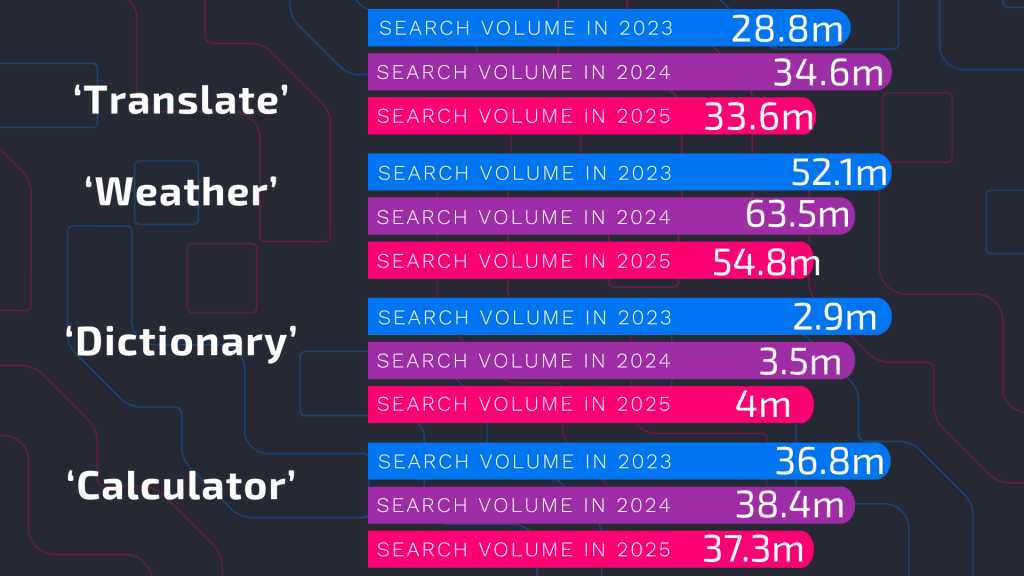
Google’s organic search top spot has been held with an impressive 90% organic search share since 2015, hitting over 50% of the search market in the early 2000s. However, with the ‘new age’ of technology, and hot topics such as ‘GEO’ & ‘SGEs’ being the talk of the future, will it manage to maintain it’s dominance?
In my opinion, not much is changing. In much the same way Google differs from Bing or Yahoo, ChatGPT, Perplexity, etc, are just different search engines. While the user experience might be vastly different, the fundamental is still the same: connecting users with results to fulfil the search intent.
For a good part of the last two decades, we used the term Search Engine Optimisation, but what we have meant is Google Optimisation. Google has had such dominance over the organic search space that there has been little value in looking at search engines such as Bing, Yahoo, and the relic Ask.com. GEO extends it’s reach beyond Google to new and exciting tools that read, present, and push content and business differently. However, it’s still a search engine with a rebrand and a new gadget.
While Google has long been the titan of the search industry, it’s organic market share has recently seen a slight decline, falling below 90% for the first time in a decade. This decrease, though minor, signals a diversifying search landscape where other platforms are beginning to emerge as viable contenders, according to a report by MarTech: “Google’s global search market share was under 90% during each of the final three months of 2024″
While technology moves quickly, user adoption can move slowly. For example, technologies like smartphones took approximately 16 years from their invention to reach widespread use. This means that predicting the next big thing is difficult.
At Big Fat Links, we have been analysing keywords, dating them back over the last couple of years, to identify small changes that may give insight into the future. Our analysis using Ahrefs has provided valuable insights into specific “how-to” search queries. For example, terms like “how to learn Spanish” and “how to make money online” have shown varying interest levels, reflecting shifts in user behaviours. The data reveals a general decline in search volumes for these terms, suggesting a need for SEO strategies to adapt to these changing trends.

We consulted with ChatGPT to compare what had increased over time. This decline also points to the increasing relevance of Generative SEO, where AI can help create and optimise content in ways that are more aligned with evolving user interests and search engine capabilities.
While this may be an inevitable part of our future, Google remains on the throne – at least for now. In comparison to our research on ‘How to’ queries, the complete opposite can be said for service-based queries, which have shown continued growth on Google, as seen below.

As we delve into the intricacies of Generative Search Optimisation (GEO), and it’s impact on digital marketing, it’s evident that while the landscape evolves with technologies like Search Generative Engines (SGEs) such as Gemini, traditional SEO pillars like backlinks still hold value. These foundational elements are recontextualised to not just enhance site authority, but also to align with the AI-driven demands for credibility and relevance. In this era of AI and GEO, it’s not about choosing between old and new strategies, but blending them to effectively navigate both traditional and generative search platforms – ensuring our content stands out as authoritative and engaging.
